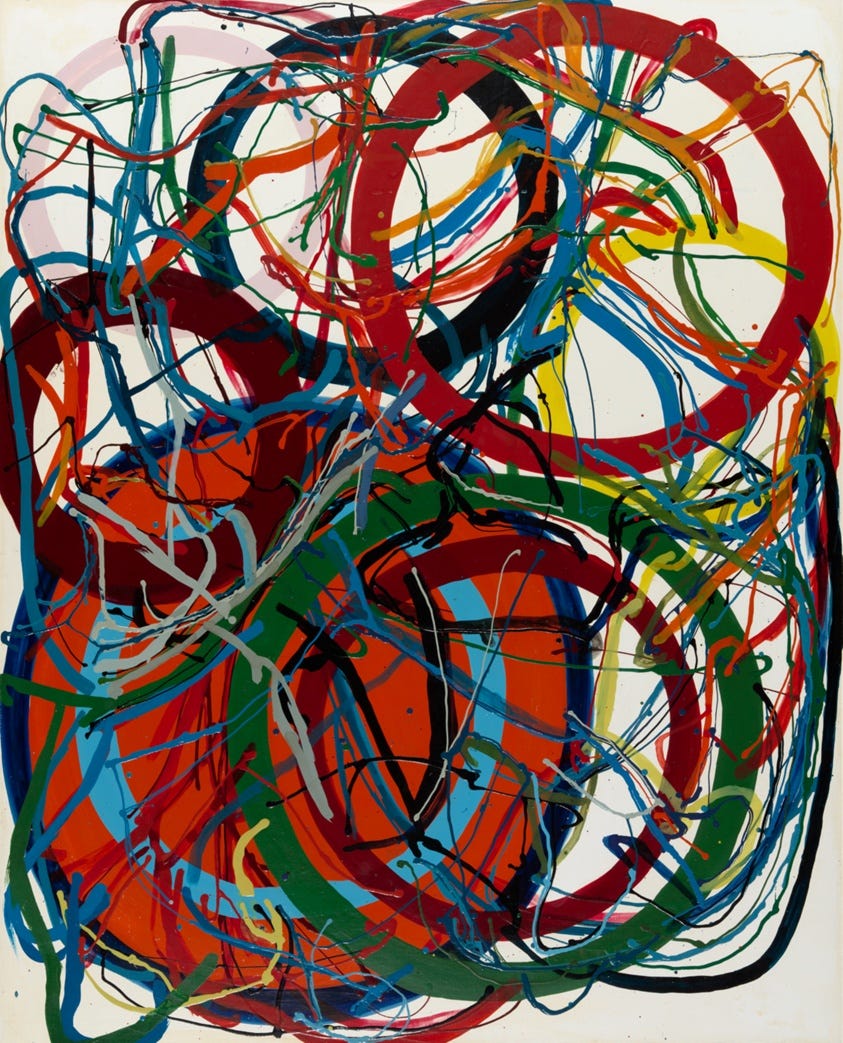Happy #CXDay!
Thoughts from a veteran CX-er on the value CX professionals bring to any role, project, or team.

I am a proud CX professional who has learned so much from my (albeit kind of strange) career.
I worked in the Beyond section at Bed Bath & Beyond as a teenager, and was promoted to supervisor when I turned 18 and could legally work until close.
During college and after graduating during the recession, I held various roles managing the service and operations of a major tourist attraction.
I worked in one of the best art museums in the world (not hyperbole), progressively helping to build our relationship and engagement strategies with members, donors, and visitors.
I pivoted into helping lead the support team for a global healthcare regulation organization.
And now I’m building out the strategy for my local government's website to meet the needs of our residents.
All of these roles are very different, but they are all focused on helping people navigate complicated systems, buildings, industries, and services. And the core of it all is building trust.
Warning - CX Rant Incoming!
I've spent my whole career in #CX primarily working directly with the public and leading teams and strategies to improve our customer’s experiences, but to be honest it took me a long time to say that proudly. Sadly, this work gets dismissed easily and often. Throughout my career I’ve been told “any teenager can do customer service.” I’ve been told my teams of smart, dedicated, caring professionals weren’t in a career that was considered “professional.” I’ve had to code my work that is focused on building relationships as “General admin - non-technical” instead of the “Work” category. I've seen people try to hide their customer-facing experience from their early career when they're trying to make a transition to a more Technical or Serious role in interviews.
So I want to take today, #CXDay, to outline some of the skills I’ve developed, and seen in my colleagues and teams in my 20+ year career working in customer experience.
Skills Any Good CX Professional Will Bring to Your Team
Communication. Working with the public we learn how to explain things in the simplest terms, from different angles, and repeating it all day like it’s the first time we’ve said it. But more important in communication than talking, is how much we learn how to listen. The words people use will tell us what’s important to them, and how we can understand their problem or needs.
Patience. This is a tough one because everyone’s patience has a limit, and working with the public (especially in any kind of high volume environment) will test those limits. Good CX people understand how to manage ours. Not to mention nothing will phase us.
Collaboration. CX work never happens in a vacuum, and no CX worker is an island. We’re the entry point for problems to be solved, so we end up building relationships across the organization. We have to rely on our teammates to get through the day together, problem solve, keep shared equipment clean, even. And outside of our team, we collaborate with other teams throughout the organization from database teams, developers, marketing, housekeeping, etc. to make sure problems get solved.
Prioritization, Multitasking, and Organization. The receipt printer breaks, someone skips the line to ask us a “quick question,” the person we’re helping needs to switch the names on their member cards - where do you start? Or we only have the resources to fix one bug this month, so how do you know which is the most important? We have to make quick prioritization calls while handling multiple systems and people. And to be able to handle all of that and still follow up, we have to have top-notch organization skills.
When you hire a CX professional, you hire someone who knows how to navigate chaos while making people feel heard.
Data. Any good CX leader understands how important it is to collect quantitative and qualitative data to be able to advocate for customer needs. Not to mention how much work goes into education and coaching on data integrity and hygiene with our teams capturing the information.
A sense of humor. Working with the public or with customers can be draining and stressful. The best way to make it through the day is to find ways to make each other laugh. I want to be really clear though, that I don’t mean that lowest-common-denominator form of bonding where we laugh at the customers. I’m talking about finding the silly little delights in the day with our colleagues and our customers. In my experience, that type of humor and joy builds much more resilient bonds than the former.
Last but by no means least…
Emotional Intelligence. I often say that service roles perform the emotional labor of our economy. The work of CX is emotional labor, which is why it often gets dismissed as “soft” and not taken as seriously in the job market. But the emotional intelligence it takes to work with people is exactly the skill needed to build systems, processes, and even governments that work for people. De-escalating conflict, managing expectations with clear communication, and - again - making people feel heard are some of the hallmarks of good CX professionals. And those skills are applicable to any career.
The emotional intelligence it takes to work with people is exactly the skill needed to build systems, processes, and even governments that work for people.
So let’s remind ourselves to put some respect on our skills. Celebrate how much we bring to our work and the unique perspectives we’ve learned from spending our careers helping people.
And the next time you’re tempted not to talk about your customer-facing work in an interview, or we want to skip over that candidate that has too much “soft” experience - I hope you reconsider.


